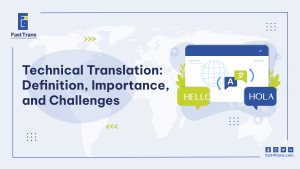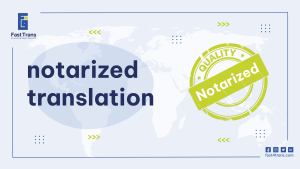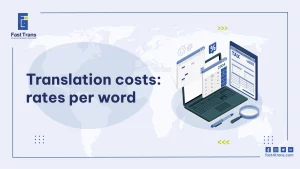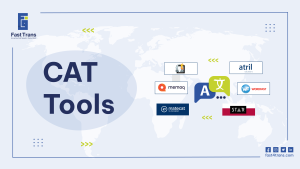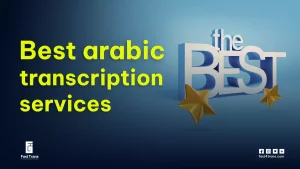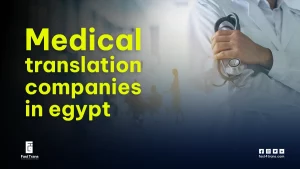Arabic Localization Quality Assurance (LQA) is the meticulous art of perfecting content for Arabic-speaking audiences by ensuring linguistic precision, cultural resonance, and seamless functionality. This essential step adapts text, UI, and visuals to reflect the nuances of the Arabic language, from right-to-left scripts to diverse dialects, while eliminating errors and enhancing user experience. By aligning with cultural expectations and regional norms, Arabic LQA not only builds trust and engagement but also ensures regulatory compliance and market readiness, making products resonate deeply and perform flawlessly across Arabic-speaking regions.
What is Arabic localization Quality Control?
Simply, Arabic localization Quality Assurance, also known as Linguistic Quality Assurance (LQA) refers to a final process in a localization project (mostly games) where checking and verifying the localization in all its aspects takes place. It has linguistic, visual, and functional focus points.
The goal is to:
- Making sure translations are clear and correct
- Text and UI elements fit neatly within the app’s design, so nothing gets cut off or misplaced.
- Eliminate bias in the localization process.
- Finding areas that need improvement in the product.
- Spot inadequate spelling, grammar, and punctuation.
- Checking that everything resonates culturally with the target audience
Why use Arabic localization Quality Control?
Arabic Localization Quality Assurance (LQA) is an essential step in ensuring that content translated into Arabic resonates effectively with the target audience. The Arabic language is rich and complex, with cultural nuances, linguistic intricacies, and regional variations that must be carefully addressed. Here are the key reasons why Arabic LQA is crucial:
1. Ensuring Cultural Relevance
Arabic-speaking regions have diverse cultural norms and values that must be respected. LQA helps identify and rectify any cultural insensitivity or misinterpretation in the localized content. This ensures that the final product aligns with the cultural expectations of the target audience.
2. Maintaining Linguistic Accuracy
Arabic has unique grammar, syntax, and script (e.g., right-to-left text direction, diacritical marks). LQA ensures that the translated text is grammatically correct, free of typos, and adheres to Arabic language conventions. This is especially important for maintaining the professionalism of legal, medical, or technical documents.
3. Adapting to Regional Variations
The Arabic language has many regional dialects, such as Gulf Arabic, Levantine Arabic, and Egyptian Arabic. LQA ensures that the localized content uses the appropriate dialect or Modern Standard Arabic (MSA), depending on the target audience and context.
4. Improving User Experience
In digital products like websites, mobile apps, and software, Arabic LQA ensures that the user interface (UI) is fully localized. This includes verifying that text is properly aligned for right-to-left scripts, no content is truncated, and all elements function correctly in the localized version.
5. Enhancing Brand Image
High-quality Arabic localization demonstrates a brand’s commitment to its Arabic-speaking audience. LQA ensures that marketing materials, product descriptions, and advertisements are both persuasive and culturally appropriate, helping to build trust and credibility.
6. Meeting Regulatory and Compliance Requirements
Many Arabic-speaking countries have specific regulations for product documentation, advertising, and software. LQA ensures compliance with these requirements, reducing the risk of legal issues and enhancing the product’s marketability.
7. Increasing Market Reach and Engagement
Accurate and culturally adapted localization enables businesses to connect more effectively with Arabic-speaking consumers. This can significantly improve customer engagement and boost the product’s success in Arabic-speaking markets.
Example of Arabic localization Quality Control (Spotify)
Spotify ensures high-quality user experiences through robust Arabic localization testing, verifying accurate translations for content like song titles and playlist descriptions, seamless app functionality across devices, and tailored features such as localized music charts and region-specific playlists.
1. Content
Spotify checks things like song titles, artist names, and playlist descriptions are accurately translated into different languages.
2. Functionality and Device Compatibility
It also performs extensive QA across various devices and operating systems (iOS, Android, Windows, etc.) to ensure the app’s functionality is consistent and compatible with different devices.
This involves testing the app’s performance, layout, and interactive features to ensure a smooth user experience.
3. Feature Localization
Localized music charts, and List of Top songs of the year, week, or month. Even playlists are curated based on your location. All of this and more is made functional and seamless, thanks to QA.
What’s the difference between localization QA and proofreading?
As you learned by now, Arabic localization QA is all about making sure your product feels right in Arabic and its cultures. It checks:
- Translation Accuracy: Are the translations correct and make sense? Or is there any room for ambiguity and misinterpretation?
- Cultural Relevance and Sensitivity: Is the content appropriate for the target culture? Does it offend them in any way?
- Functionality: Does everything work well in the new language and format? Looking at things like Text direction and text expansion.
Proofreading, on the other hand, is mostly textual. A proofreader checks:
- Spelling and Grammar: Are there any mistakes or typos?
- Punctuation: Is punctuation used correctly?
- Consistency: Are things like dates and names consistent throughout the text
In short, LQA includes proofreading as one little part of its process that’s related to polishing only the quality of textual elements.
Read more: Localization Glossary
How Arabic Localization Quality Assurance Works?
Arabic localization quality assurance ensures content is linguistically accurate, culturally relevant, and functionally seamless for Arabic-speaking users. This process includes validating translations, fixing user interface issues, and adapting visuals and layouts to resonate with the target audience.
1. Completion of Arabic Localization and Translation
Prepare the localized elements and resources by setting up all translated assets.
2. Checking Translation Accuracy
Here, the team validates the linguistic accuracy of the translation. They make sure all translations are comprehensible and appropriate, adhere to the original meaning of the source text, and use the right industry terminology.
3. Testing Functionality
Functional testing includes User Interface related things like buttons, menus, and dialogs, text alignment, text direction. It could spot UI issues like text truncation or expansion where the text completely escapes the screen or overlaps with each other, creating a very unpleasant user experience.
4. Cultural Adaptation Review
A crucial step in localization testing is to assess whether the content on the App/software/website…etc is relevant to the target audience. QA specialists test non-textual aspects such as images, colors, layout…etc.
Read more about: Best Arabic localization companies
Why is Arabic localization testing important?
Arabic localization testing ensures a product’s seamless adaptation for Arabic-speaking markets by refining user experience, verifying SEO relevance, and meeting regional compliance standards. This process enhances discoverability, cultural accuracy, and usability, minimizing errors and boosting user satisfaction.
1. Launch Your Product with Confidence
Running Quality Assurance testing on Arabic localization projects gets the product some internal exposure before it’s out to the public. The feedback you receive from team members like translators, editors, proofreaders, software developers, and basically anyone who engages in this process is a step to make it polished and avoid disappointing users with a glitchy or buggy product!
2. Search Engine Optimization (SEO)
Arabic Localization testing ensures that the product’s SEO elements—such as keywords, meta tags, and URL structures are optimized for each target market.
This includes verifying that localized content ranks well in search engines within different regions. For instance, ensuring that keyword translations accurately reflect local search behavior can significantly impact discoverability and traffic.
3. Fulfilling Regional Technical Compliance
Technical standards or requirements, such as character encoding or date formats get verified through QA.
It prevents things like mis-formatted dates, numbers, or wrong currencies from showing up to the users.
For example, testing might reveal that a date format must switch from MM/DD/YYYY to DD/MM/YYYY for European markets.
4. Maintaining Consistency and Utilizing Translation Tools
This means, spotting inconsistencies in translated terms before the final rollout.
It’s possible that human translators (especially if there is a big team working on the project) will use different terminologies to give the same meaning.
Translation technologies like CAT tools, Translation memory TM, and term glossaries can be utilized to streamline repetitive tasks and to track inconsistencies among textual elements.
Read more about best localization tools
5. Enhanced User Experience (UX) Contextual Relevance
Arabic Localization testing goes beyond Arabic language to ensure that the user experience is contextually relevant to each market. This includes adapting navigation flows, imagery, and content to local preferences.
For example, testing might reveal that localized versions of a website should feature different call-to-action buttons or culturally relevant imagery to better engage users in each region.
When would you need a localization quality assurance service?
- Before Launching in New Markets
- After Major Updates or Revisions
- When Adding New Languages
- For Compliance with Local Regulations
- To Improve User Experience
Manage your Arabic LQA process with Fast Trans
Get top-tier Quality Assurance, at a rock-bottom price at Fast Trans
Localization QA can be a daunting process if not executed by experts who have years of hands-on experience. At Fast Trans, we take pride in being able to curate a team of professionals who understand that QA is probably the most important process in your ambitious journey of localizing your product.
We share the business growth vision with you, and our goal is to help you unlock the potential of your product, one QA test at a time.
And if you’re yet thinking of localizing your product. You have landed on the right page. We offer a comprehensive range of localization services whether it is a SaaS, website, game, App, videos, or social media.
Conclusion
Arabic Localization Quality Assurance (LQA) is a critical final step in adapting content for Arabic-speaking audiences. It involves assessing linguistic accuracy, functional integrity, and cultural relevance of localized materials, ensuring they align with the rich complexities of the Arabic language and its diverse cultural contexts. This process guarantees clarity in translation, optimal text and UI alignment, and an overall culturally resonant experience. Additionally, it addresses regional variations in Arabic dialects and script conventions, ensuring that content is not only accurate but also user-friendly and engaging.
Implementing Arabic LQA improves user experience by verifying text direction, eliminating content truncation, and ensuring compatibility across devices and platforms. This rigorous process bolsters brand credibility by demonstrating cultural sensitivity, maintaining linguistic precision, and meeting regulatory requirements specific to Arabic-speaking markets. Ultimately, Arabic LQA enhances market reach and engagement, paving the way for seamless product launches and fostering trust among Arabic-speaking audiences.



